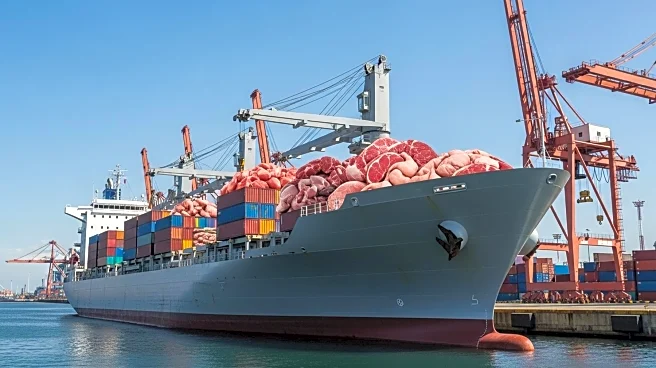What's Happening?
Wesley Batista, a key figure behind JBS, the world's largest meat-processing company, has highlighted the U.S.'s growing need to import beef due to high domestic demand for protein. Despite being the top beef producer globally, the U.S. is experiencing record-high beef prices and a decline in cattle numbers, prompting increased imports from countries like Brazil. The popularity of protein-rich diets and the influence of GLP-1 drugs are contributing to this demand surge. The U.S. has seen a significant rise in beef imports, despite tariffs imposed by President Trump, with imports from Brazil increasing by 91% in the first half of the year.
Why It's Important?
The U.S.'s reliance on beef imports underscores challenges in domestic agricultural production and highlights the global interconnectedness of food supply chains. Rising beef prices and declining cattle numbers could impact consumer prices and food security. The situation also reflects broader dietary trends and the influence of pharmaceuticals on consumer behavior. For JBS, this demand presents both opportunities and challenges, as it navigates tariffs and market dynamics to maintain its position in the U.S. market. The company's ability to adapt to these changes will be crucial for its continued success.
What's Next?
As the U.S. continues to grapple with high beef prices and supply constraints, it may seek to diversify its import sources or invest in domestic production capabilities. The ongoing trade dynamics, including tariffs and international relations, will play a significant role in shaping the future of the U.S. beef market. Stakeholders, including policymakers and industry leaders, will need to address these challenges to ensure a stable and affordable protein supply for American consumers.








